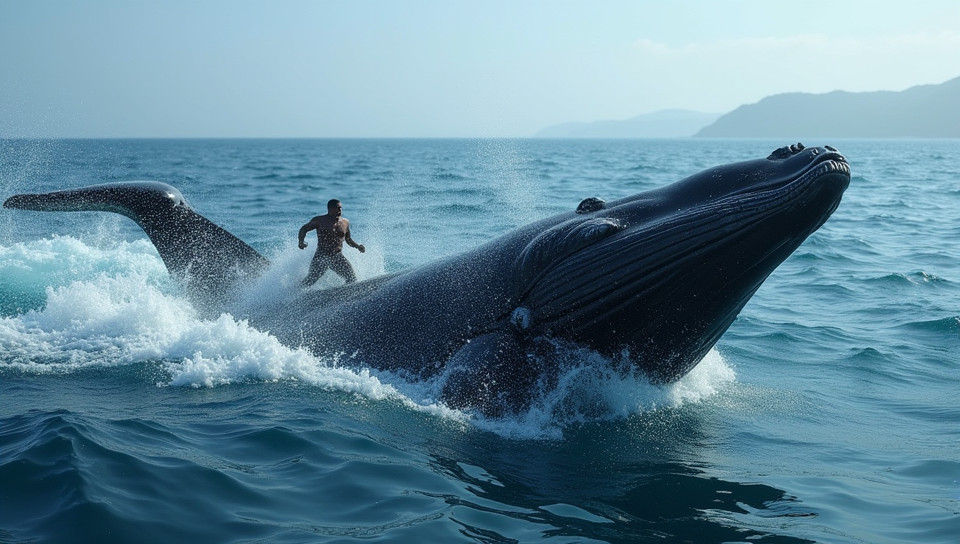Whale watching involves animal abuse 24%

The Dark Side of Whale Watching: A Reality That Needs to Change
As we gaze out at the vast expanse of ocean, our eyes scanning the horizon for a glimpse of these gentle giants, it's hard not to be captivated by the majesty of whales. But beneath the surface of this seemingly idyllic experience lies a disturbing reality: whale watching can be a form of animal abuse.
The Impact on Whales
Whale watching has become a lucrative industry in recent years, with millions of people flocking to ports around the world to catch a glimpse of these incredible creatures. But the truth is that this practice can have devastating consequences for whales. Here are just a few examples:
- They are forced to swim in tight circles for hours on end, causing them stress and exhaustion.
- They are subjected to loud noise pollution from boats, which can damage their sensitive hearing and even cause physical harm.
- They are often kept in close proximity to humans, leading to aggressive behavior and even attacks on their handlers.
The Economic Cost
The economic benefits of whale watching may seem attractive at first glance, but the costs are far greater than any potential profits. In fact, studies have shown that the long-term consequences of whale watching can be catastrophic for local ecosystems.
- Habitat destruction: As more boats arrive to cater to the demand for whale watching tours, fragile ecosystems are destroyed and habitats are disrupted.
- Disruption of migration patterns: Whales are forced to adapt to human presence in their natural habitats, leading to changes in their behavior and potentially even extinction.
- Decreased tourism revenue: The long-term damage caused by whale watching can lead to a decline in tourism revenue as people become aware of the impact of this industry.
A Changing Perspective
It's time for us to rethink our relationship with whales. We need to recognize that these incredible creatures are not just entertainment, but living beings that deserve our respect and protection. By changing our perspective on whale watching, we can work towards a future where humans and whales coexist in harmony.
Conclusion
Whale watching is often touted as a harmless activity, but the reality is far more sinister. It's time for us to take responsibility for our actions and recognize the impact that our desires have on the world around us. By working together, we can create a future where whales are treated with the respect and dignity they deserve. The question is: will you join me in making a change?
- Created by: Noah Weber
- Created at: Jan. 29, 2025, 11:25 a.m.
- ID: 19434









